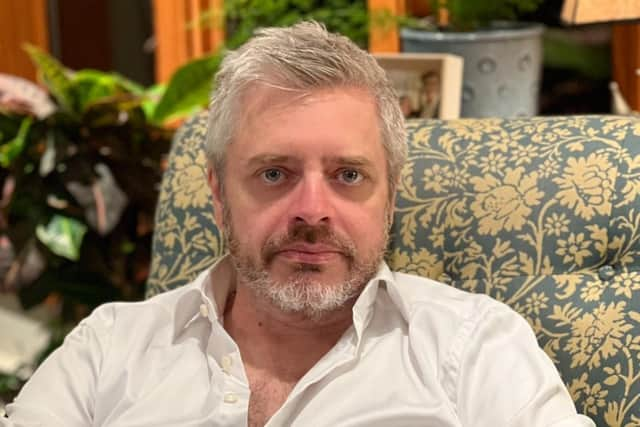Book review: This Other Eden, by Paul Harding
Paul Harding is a Pulitzer Prize-winning American novelist, a stylish writer who, unlike so many of his compatriots, writes with effective economy. That said, his prose does sometimes veer towards the self-indulgent. The “Other Eden” of the title is Apple Island off the coast of Maine, which is evidently based on the real-life Malaga Island. Scholars believe that a freed slave called Benjamin Darling first came to live on Malaga and on nearby Horse Island in the early 1790s, and in the novel Apple Island gets its name from a runaway slave who, with his Irish wife, plants apple seeds there in 1793.
In the book, the pair survive a terrible storm and gradually other waifs and strays come there too and a little community develops. By the beginning of the 20th century they are a very mixed bunch, few of them healthy, some perhaps a little mad, but on the whole harmonious, caring for their children as best they can, looking out for each other. An idealistic schoolmaster visits the island each summer, rowing over from the mainland. He gives classes and discovers that some of the children have an unlooked-for aptitude; one boy is a talented artist, one girl shows an uncommon eagerness to learn Latin and does so very well. Even though almost every home on the island is infested by fleas and lice, and the children’s diet is inadequate, it does seem a sort of innocent Eden, a refuge also for people who are unable to fit into conventional society.
Advertisement
Hide AdAnd this is the trouble. In the early 20th century there was a fashionable science – or, as we now judge it, a pseudo-science – eugenics. It had its roots in Darwinism, the theory of evolution according to which nature ensured the survival of the fittest. However, industrialism and the rapid growth of cities, especially in Europe and the USA, led to fears that people of what was considered “inferior stock” were surviving and breeding in defiance of nature. Over-population was feared – as indeed it is indeed again now by many who believe it contributes to climate change. Eugenics meant that the unfit should be prevented from breeding, and this was in the interest of the nation and humanity. Many respectable and much admired progressive thinkers and politicians were attracted to the idea of eugenics. So, of course, were less reputable figures such as Adolf Hitler.


The fashionable theory of eugenics proves a tragedy for Harding’s Apple Islanders – as, indeed, it did for the real-life residents of Malaga Island. Though the islanders harm nobody, their presence and indeed existence are deemed undesirable. The state governor sends a committee to investigate their condition. It includes two doctors, “both with a particular interest in subjects deteriorated by inbreeding” and both members of the American Breeders’ Association – a body that is not the author’s invention. (It existed and was active then and it still exists today, although in its modern incarnation, the American Genetics Association, it is “dedicated to understanding and celebrating diversity” and “opposed any forms of discrimination”.)
Naturally, they find what they expect to find. Measuring the children’ heads with tape-measures and calipers, they discover that they are degenerate. Though there is no reasonable way in which the islanders living their separate and private lives, interfering with nobody, can be judged a public danger, this is what they are deemed to be, and appropriate action must be taken, the island cleansed of this “filth”. They will be deported, some to reform schools, some doubtless to asylums, their homes destroyed, their graves dug up and bones scattered (or some preserved for scientific research). It’s a painful story, beautifully written.
Before all this, however, Harding’s “Other Eden” has its peculiar charm. There is kindness, sympathy, humour and friendly co-operation among the islanders. Some are agreeably eccentric, some are wise. For the most part they are caring, and I would guess that most of us who read this novel will find pleasure in his description of the islanders’ life and be horrified by the cruelty of its destruction.
On reflection, you may think that the author’s dice are loaded and that the islanders’ life is unlikely to have been so idyllic. Even so, its destruction by self-righteous politicians, officials and doctors in thrall to the theory of eugenics remains deplorable, even disgusting.
This Other Eden, by Paul Harding, Hutchinson Heinemann, 221pp, £16.99